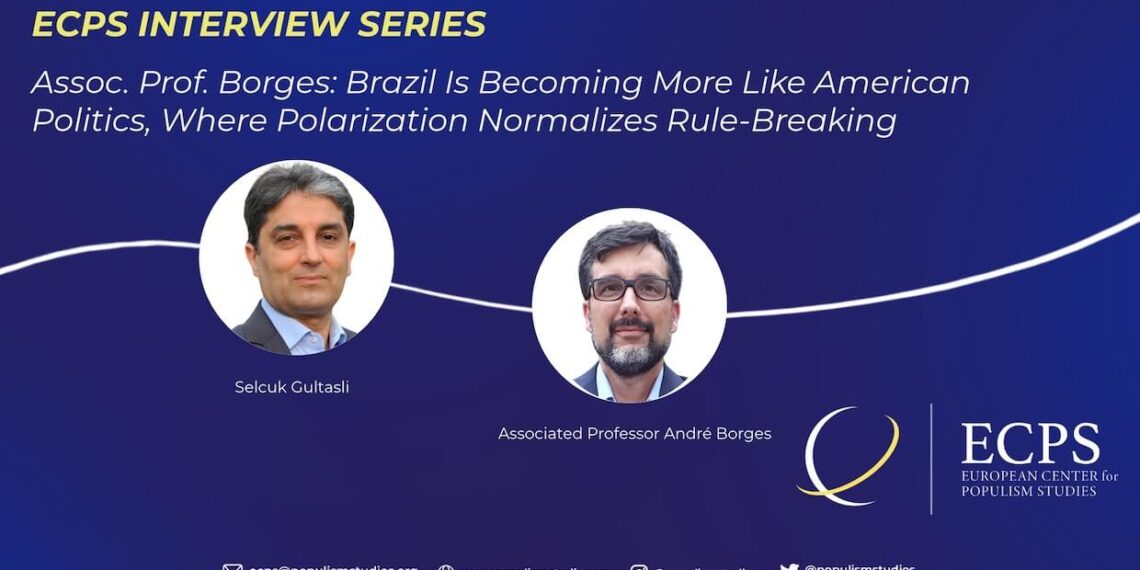Brazil’s democracy faces one of its greatest stress tests with former President Jair Bolsonaro sentenced to 27 years for plotting a coup. In an interview with the ECPS, Dr. André Borges, Associate Professor of Political Science at the University of Brasília, warns that Brazil is “becoming more like American politics, where affective polarization drives citizens to see opponents as existential threats.” Such polarization, he argues, risks normalizing democratic rule-breaking. Yet Dr. Borges also highlights Brazil’s resilience, rooted in its “institutional mix that deconcentrates authority”—federalism, separation of powers, fragmented parties, and an autonomous Supreme Court. This paradox defines Brazil today: resilient institutions confronting dangerously eroding democratic norms.
Interview by Selcuk Gultasli
The conviction of former Brazilian President Jair Bolsonaro to 27 years in prison for plotting a coup has plunged Brazil into one of the most turbulent chapters of its democratic history. While Bolsonaro’s allies denounce the ruling as political persecution, and international far-right figures echo claims of “lawfare,” Brazil’s Supreme Federal Court (STF) has defended the trial as a necessary step to safeguard democracy.
Against this backdrop, the European Center for Populism Studies (ECPS) spoke with Dr. André Borges, Associate Professor of Political Science at the University of Brasília, whose research focuses on party systems, coalition formation, and right-wing populism. Dr. Borges warns that Brazil is “becoming more like American politics, where affective polarization drives citizens to see opponents as existential threats.” In his view, such dynamics risk normalizing democratic rule-breaking, as voters increasingly rationalize the repression of political adversaries in the name of survival.
At the same time, Dr. Borges stresses that Brazil retains significant institutional defenses against authoritarian capture. “In comparative terms, if I look at other Latin American countries, I would say that Brazilian institutions are, in a sense, more resilient to this kind of attack. The reason for this has to do with several factors, one of which is that Brazil has an institutional mix that deconcentrates authority. It has a federal system, a presidential constitution with separation of powers, and a very fragmented party system. On top of that, there is a relatively autonomous Supreme Court.”
This “institutional mix,” he argues, explains why Bolsonaro could not consolidate authoritarian rule in the style of leaders such as Nayib Bukele in El Salvador or Viktor Orbán in Hungary. Since 1989, no Brazilian president has commanded a legislative majority, forcing presidents—including Bolsonaro—to rely on fragile coalitions with clientelistic parties that are reluctant to rewrite rules that benefit them. “Doing so would simply empower Bolsonaro and his family to the detriment of traditional politicians—and that is not something they would like to see happening,” Dr. Borges notes.
By situating Bolsonaro’s downfall in the tension between institutional resilience and intensifying polarization, Dr. Borges highlights a central paradox: while Brazil’s democracy has thus far resisted authoritarian capture, the country’s deepening affective divides may yet erode the very democratic norms its institutions have preserved.


